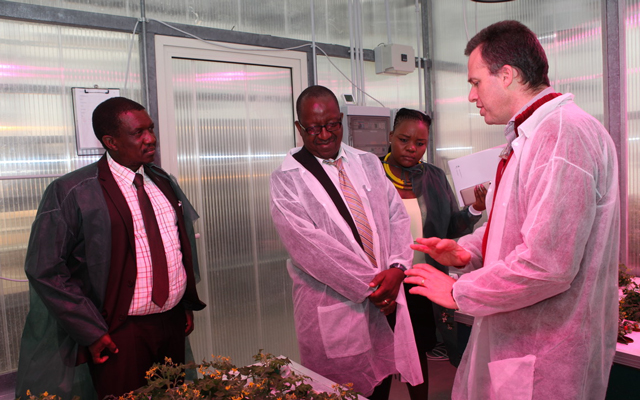Early-career scientists from developing countries will be able to spend up to one year pursuing advanced research in Italy under a new accord between TWAS and ENEA, a leading Italian research agency in the fields of energy, environment, new technologies and technology transfer.
The joint programme offers post-doctoral researchers from the South a valuable opportunity to work in Italy under the aegis of ENEA, the Italian National Agency for New Technologies, Energy and Sustainable Economic Development.
The programme is open to scientists from the 66 science- and technology-lagging countries identified by TWAS. The deadline to apply is 23 October.
"We are extremely pleased to start this collaboration, given the opportunity that this will give to young scientists from developing countries to benefit from the tremendous training and learning potential in ENEA's laboratories," said TWAS Executive Director Romain Murenzi.
And, he added: "TWAS is enthusiastic about the areas of research on offer which touch upon bioenergy, efficiency of energy conversion and use, and protection of land and natural resources, just to name a few. These clearly support the United Nations Sustainable Development Goals and are in line with TWAS efforts to have an impact in areas relevant to sustainability."
"We credit the agreement signed with TWAS with great value and importance," said ENEA President Federico Testa. "We are confident that the fellowships we assign may have a multiplier effect for knowledge, as they will be given to promising young scientists who work in scientific academies in their countries.
"For our laboratories," Testa explained, "this experience represents an important chance to compare different education systems. Choosing to promote international mobility of scientists from the South of the world, giving them the chance to work in our laboratories, is part of ENEA's wider strategy aimed at reinforcing our activities of international cooperation, within our triennial plan 2017-2019."
ENEA is a multidisciplinary Italian research organization based in Rome, with a staff of about 2,500. The agency concentrates in particular, in areas such as energy efficiency, renewable energy sources, nuclear fusion, climate change, safety and health, new technologies and electrical system innovation. Technology transfer is also a core business for the agency.
TWAS is a global academy with more than 30 years of experience building science in the developing world. It has nearly 1,200 elected fellows, and it offers more than 500 PhD and postdoctoral fellowships every year.
Both institutions share key goals such building global science networks, stimulating international initiatives, and staging high-impact events and meetings. They both have strong ties with the Italian Ministry of Foreign Affairs and International Cooperation, which provides core financial support essential to TWAS activities.
Applicants must hold a PhD, preferably obtained within the last five years at the time of the deadline. Women scientists are particularly encouraged to apply. Interested scientists can find more information and an application form on the TWAS website.
Cristina Serra

